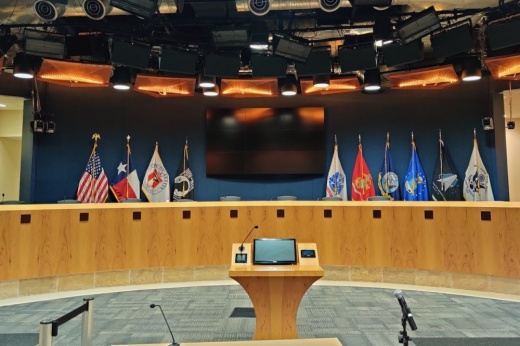In the lawsuit, originally filed in Travis County court, plaintiffs alleged that Austin's redistricting process of 2021 effectively "disenfranchised" thousands of voters by redrawing City Council district boundaries and shifting residents into a district where they had not voted for their own representative.
Austin City Council elections are held on a staggered basis every two years, meaning people who were moved into certain districts in 2021 do not have the opportunity to vote for their council member until 2024.
The seats of mayor and council members for districts 1, 3, 5, 8 and 9 are on Austin's election ballot this November, and more than 30 candidate—including two incumbent—are eyeing runs for those council seats.
Elections for representatives in council districts 2, 4, 6, 7 and 10 will be held in November 2024, as scheduled. Council members from those districts—Vanessa Fuentes, Chito Vela, Mackenzie Kelly, Leslie Pool and Alison Alter—are serving terms that expire in January 2025 and will not face unexpected re-election campaigns.
The state Supreme Court made its decision to decline taking up the Austin lawsuit June 24, just over a month after a Travis County judge sided with the city in the case. Attorney Bill Aleshire, representing the 13 resident plaintiffs, previously pushed the case before the Third Court of Appeals—which declined to take it up—and the Supreme Court to reach an outcome before the candidate filing period for council races begins in late July.
City lawyers had argued that residents suing over the issue did not have standing and that voters now living in a new district will have their right to vote preserved through the next relevant civic election. On June 24, a city spokesperson echoed a statement about the council system that was made after the May update in Travis County.
“We are pleased that the Texas Supreme Court has decided not to review our charter requirement for staggered terms for Council Members, originally passed by Austin voters," the spokesperson said.
In an email, Aleshire said he was both "proud and disappointed" in the outcome following his work on the case.
"I’m proud to represent those voters who stepped forward to try to protect everyone’s right to vote—the right to give their consent—on who represents them on the Austin City Council," Aleshire said. "I’m disappointed that the Texas Supreme Court did not take this opportunity to address what the right to vote means under the Texas Constitution. This issue will be 'live' again after the next census and redistricting. I can only hope there are true advocates for voting rights who will seek a legislative solution, like we have for the Texas State Senate."





